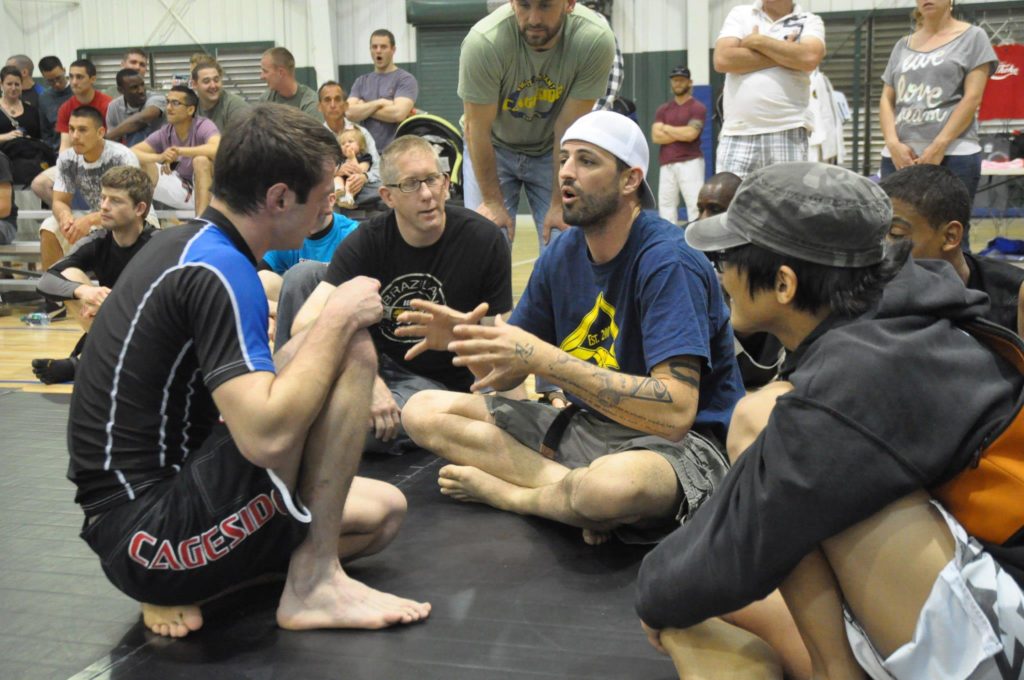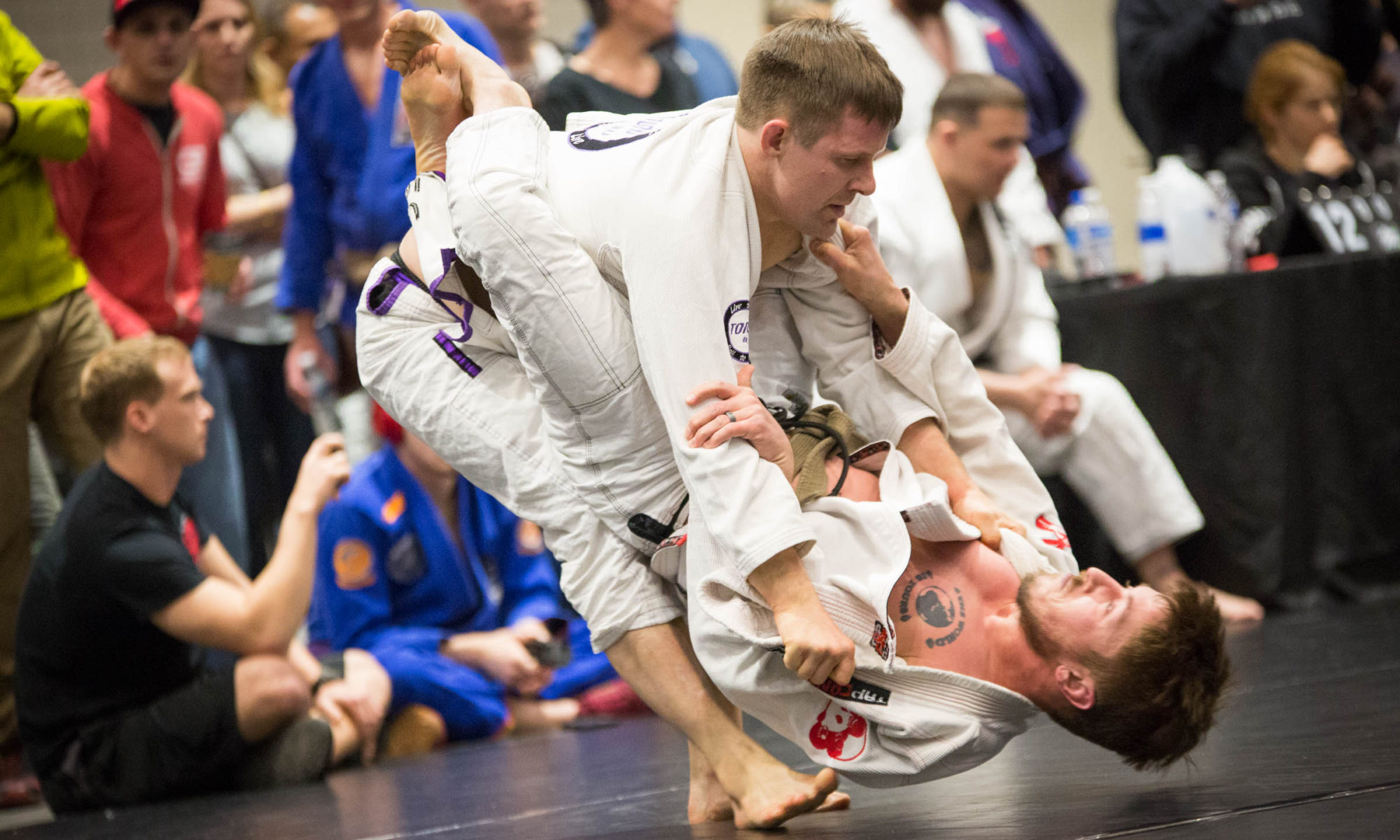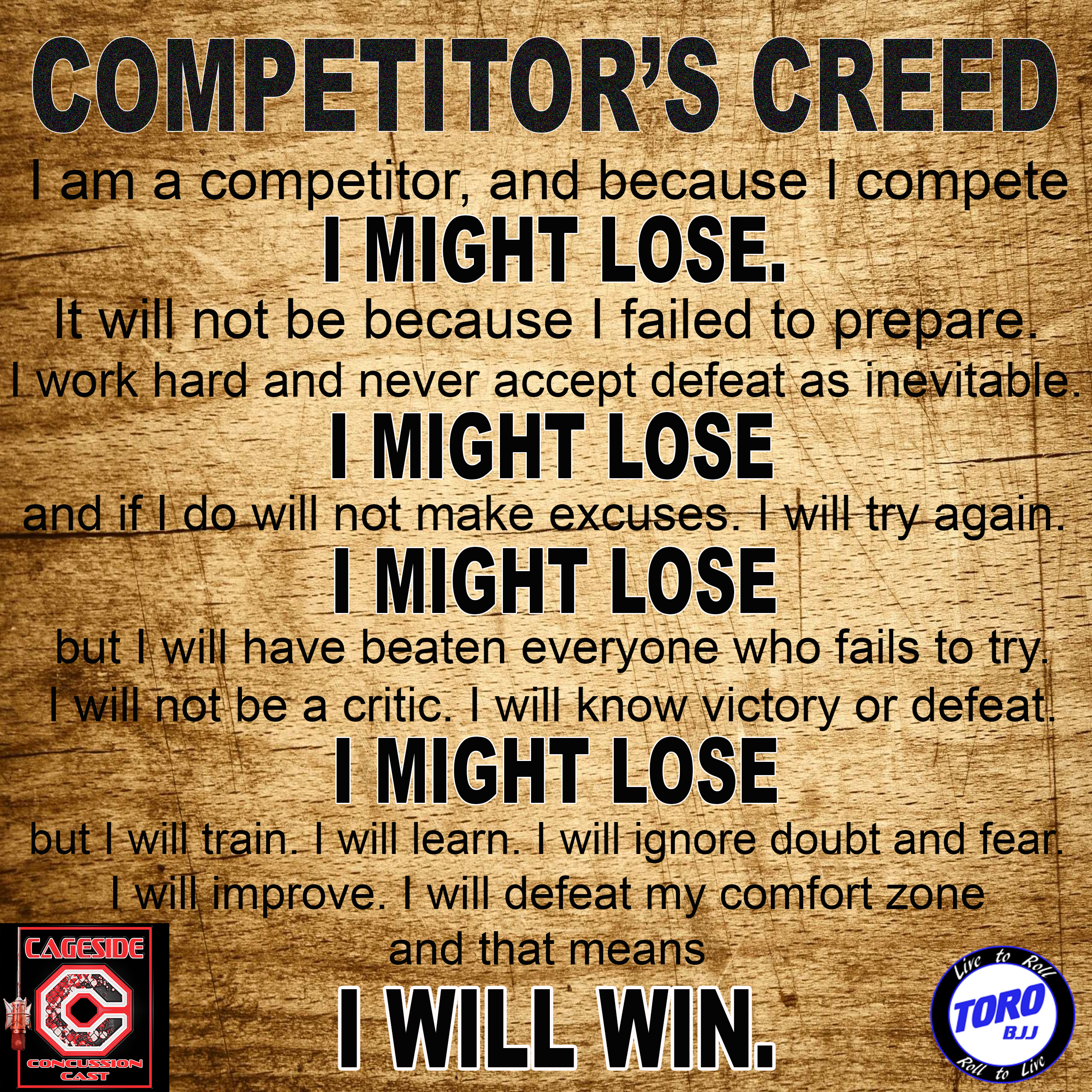Over the years, I’ve cornered a lot of my friends and training partners in hundreds of jiujitsu matches. Everyone’s style of doing this is slightly different, and I think establishing clear expectations for what’s about to happen is useful. Now that we have a crop of new white belts about to embark on their competition journey for the first time, I thought I’d aggregate the spiel I usually give into one post. I haven’t given all this as one speech before, but all of this is advance advice I have actually given competitors before coaching them. Good luck to everyone competing at US Grappling Charlotte, and if you’re competing for Triangle Jiu-Jitsu, give this a read before you find yourself with me in your corner.
You’re about to have an exceptional experience. 99.9 percent of the human population will never do this, and it’s going to be exhilarating. You should be proud of yourself for signing up and whatever happens out there, you’ll be better because you did.
This is your experience. What you do in this match will be your achievement. I’m just here to help. We always want to win. And I want my coaching to help, not hurt, so here are the things you need to know.
I’m going to be giving you information and advice throughout the match. For one thing, I’ll be keeping track of the time and points for you, so you don’t have to. This will help you make strategic decisions about what you do. These will be the cold, hard facts: neither of us can change the fact that there are 90 seconds left, or that we’re up 2 points and down an advantage.
Most of my advice will be in terms of options. Ideally, I know your complement of techniques pretty well. If you come to my classes or we train together, I should have a good idea of the moves you’re best at. I want to encourage you to do those moves, to point out opportunities you might miss, or to just give you a few options about how to proceed (i.e., “We can pull guard here if we want, but if you want to shoot, the single leg is there”). This helps you know that there’s more than one door in front of you, and ideally it also avoids telling your opponent what you’re going to do (“she’s gonna pull guard!”). At times if I see you setting something up, I’ll say “I like it!” for exactly the same reasons.

My main goal will be to get you to safe spots, hubs where you can control your opponent and decide what the best plan of attack is. If I see the chance to get us to one of those spots, I will advise you to get your grips and settle there.
If I don’t know your game well and you ask me to coach you, I’m happy to, but let’s have realistic expectations of each other. I will still give you the best possible information I can — maybe I can see that your opponent is opening her guard when you can’t see it, and I want to let you know that — but in terms of tactical advice, I may just tell you what I would do there. This may or may not be what you should do there, because our jiujitsu may be different. Therefore:
I won’t be offended if you ignore my technical suggestions. It’s you out there, not me. Maybe you see or feel something in the moment that means you shouldn’t do what I want you to do — like maybe your base is compromised, and if you try to pass the way I want you to, you know you’ll get swept. Or maybe you’d like to do what I want you to do, but you don’t know the move well enough to execute it with confidence. Maybe you just get tunnel vision. That’s fine: we’ll debrief after the match about what you chose to do and why, and what we need to work on for next time (including, maybe, our communication!). Don’t think I’m going to be frustrated with you if you don’t do exactly what I say: I will trust that you are trying, and please trust that I am trying to give you the best advice I can, too.
Sometimes, I will shout firm and definitive advice. This means I am 100 percent certain that this is what you should do, so please try to do it. If you can’t do it, because you don’t understand or because you can’t execute it for whatever reason, I won’t be upset with you, but if you hear me yelling something like “we’ve got to put our knee in the middle next time so he doesn’t re-close the guard” or “you need to let go of that grip and shrimp away, right now,” I strongly encourage you to try to do it.
I probably won’t yell. It’s not really my style, and I think it’s usually counterproductive. I want you to do the best possible jiujitsu move, which means I want you to be cerebral and technical. If you’re a beast that can jump out of the gym and always outlast your opponent with cardio, awesome: feel free to do that, and you probably don’t need my counsel anyway.
Don’t forget to have fun out there, killer. We want to win. We always want to win: it’s the objective, and it’s always more enjoyable than losing. But you get to do jiujitsu today, and your body is healthy enough for you to go out and have an experience that almost nobody else gets to in this life. There’s nothing better than a day doing this, and you have that chance today. What’s better than that?

